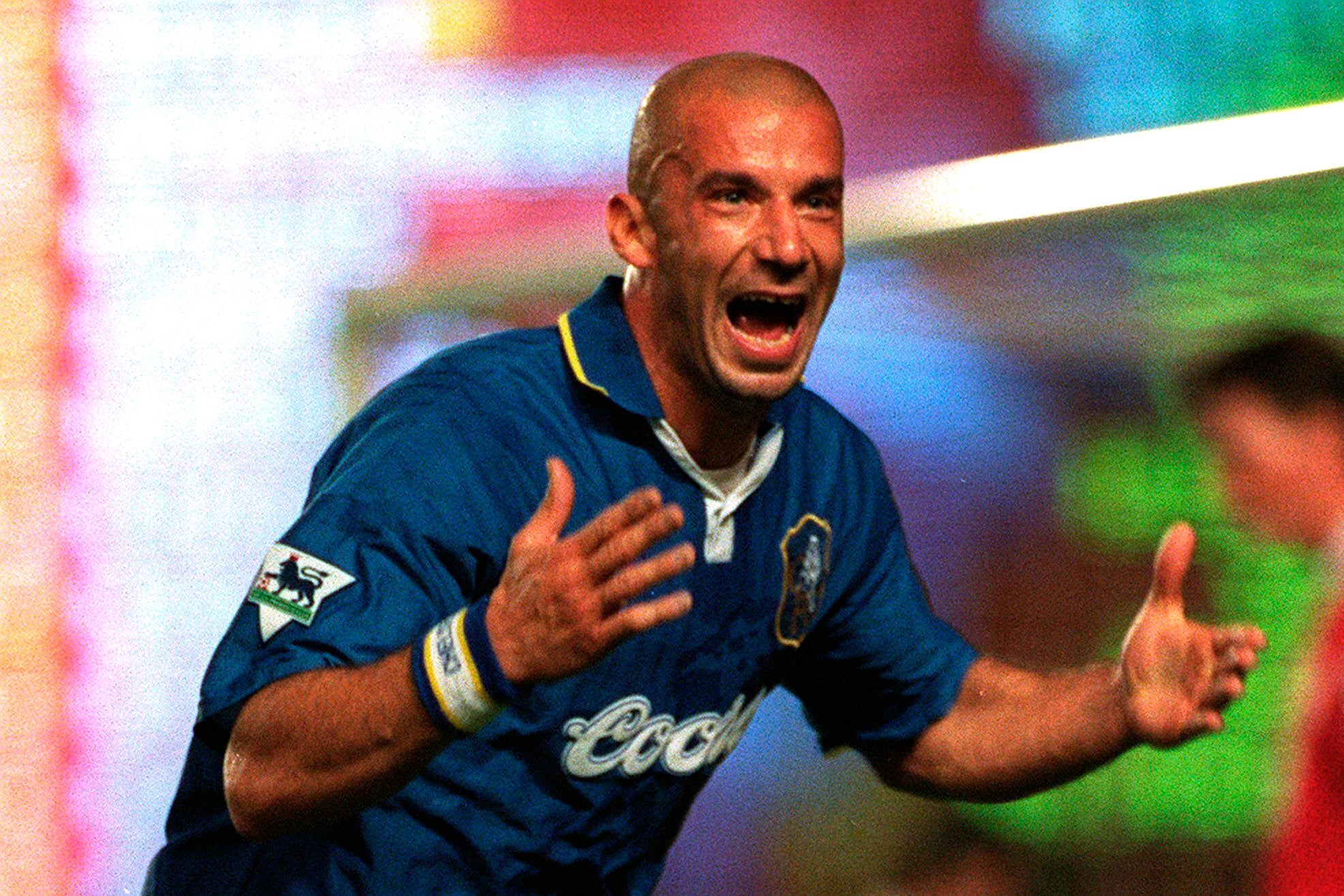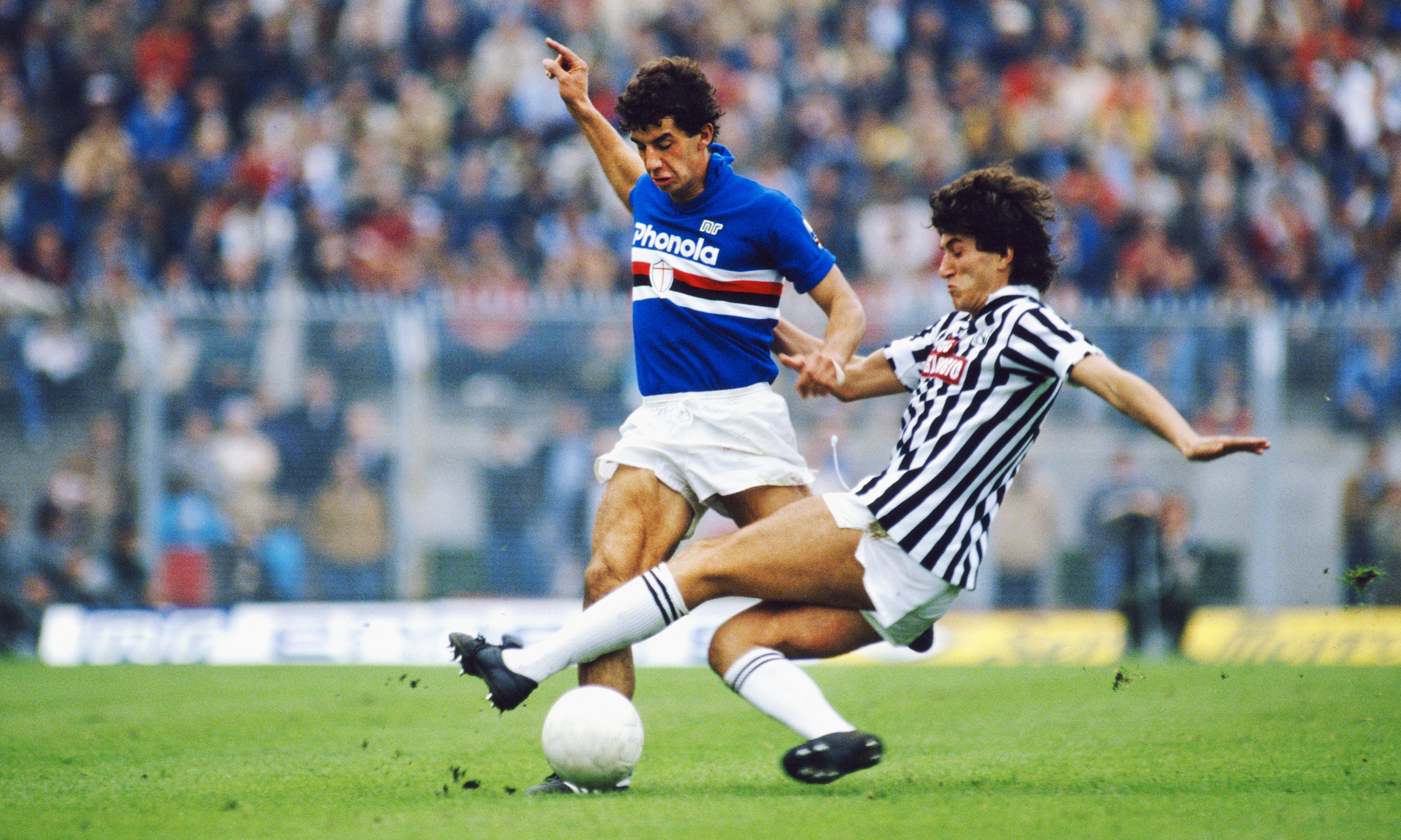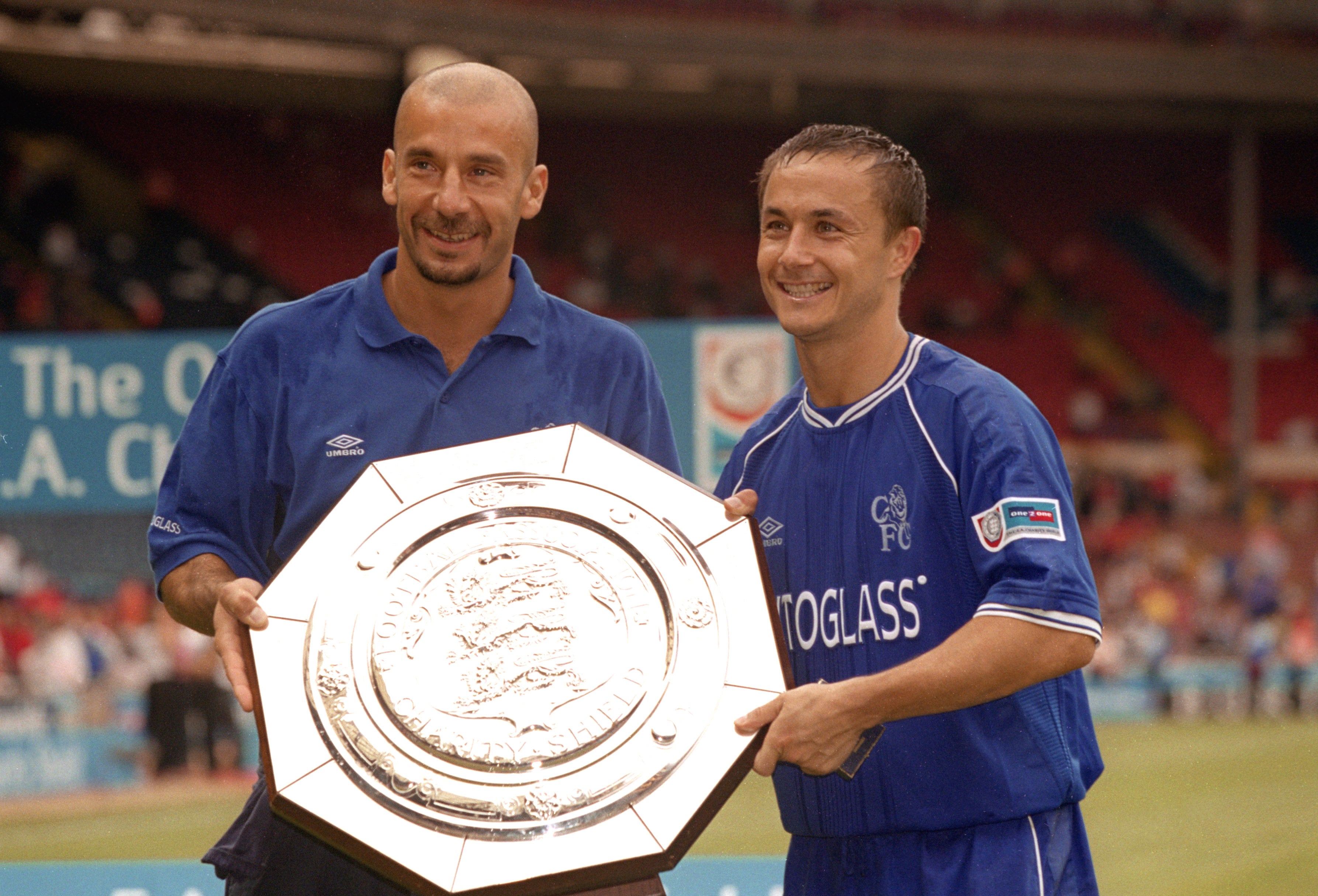How Gianluca Vialli scored goals and touched souls
Vialli wore his wealthy upbringing with grace and brought a rare sophistication to the English game, and the many tributes following his death speak of his charm as much as his talent

It was revealing that so many of the tributes following the death of Gianluca Vialli focused not on his career, but on his character.
The stories were touching and humorous in equal measure, like the time Vialli and fellow Italian Gianfranco Zola wanted to thank Chelsea’s player liaison officer, Gary Staker, for helping them adjust to English life. They told Staker they were taking him out to dinner, and he drove his old Ford to the restaurant where he was persuaded to hand over his keys to a waiter for parking. After the meal, Staker became flustered when he couldn’t find his car outside, and he was even more confused when the Italians pointed at the gleaming new BMW sitting in the car park. When he eventually got his head around their gift, he wept.
During those early days at Chelsea, Vialli worked hard on his English with a little help from his mischievous captain, Dennis Wise. Wise would teach him a new phrase each week and Vialli would endeavour to crowbar this latest nugget into media interviews. Vialli was in on the joke of course, and in his unique blend of Italian Cockney he told a reporter after one defeat: “Well, ‘ats off to them.”
More recently was the story from Euro 2020 when Vialli was working as part of Italy’s backroom staff, between rounds of chemotherapy. He turned up late for the bus departing for Italy’s first game causing the driver to slam on the brakes, so it became tradition for the rest of the tournament that just as the Italian team bus was leaving the hotel, Vialli would come rushing out waving his hands in the air, pretending to be late. The door would open and he would step aboard, amid great cheers from the Italian players.
Alongside his talent, it was these little things which added up to make Vialli such a lovable football man, one taken far too young. Fifty-eight is an age when you can leave behind two families: his wife and two teenage daughters survive him in London, the city he moved to in 1996 and never left; and so does his elderly mother and four older siblings, with whom he grew up in a grand 14th-century castle in Lombardy.
Vialli carried his wealthy upbringing with grace and charm, and his broadened horizons beyond football gave him an air of sophistication, particularly in the English game. Perhaps the luxury of perspective meant he could afford not to take life or sport too seriously. He loved football and yet after hanging up his boots it was not a burning obsession like some coaches. “I don’t want to think about football 24 hours a day,” he said on the stresses of becoming Chelsea manager.
He also said: “Don’t believe anyone who tells you football is a war. It’s a sport, a game, and you play games with your mates.”
It was a game he mastered. Vialli could be gentle and thoughtful off the pitch but he was tenacious on it, partly out of desire and joy, and partly because he was so conscious of his privilege. “I never wanted anyone to question my attitude on the football pitch.”
He was the complete striker, with two strong feet and a good leap; quick enough to get in behind but cute enough to drop into the hole and play. It is part of why he dovetailed so well with Roberto Mancini at Sampdoria, because the Gemelli del gol as they were known - “the goal twins” - were well-rounded players who could adapt to any role. They were great friends too, which helped. “When you’ve got two strikers who don’t care whether the other striker is scoring three goals and you’re not scoring any, it’s fantastic,” Vialli said, “because all we wanted was for the team to win.”

His friendship with Mancini was a thread throughout his career and his life. The pair knew each other as teenagers in the late Seventies, won the title with Sampdoria in 1991, and memorably engaged in a long, soulful embrace on the Wembley turf after Italy’s triumph over England in the Euro 2020 final, where Mancini was manager.
When thinking about Vialli, many will recall their partnership spearheading Sampdoria’s sole Serie A crown, a season that remains one of Italian football’s most extraordinary stories. Vialli is that rare player who conjures memories of a fuzzy mop of hair in Sampdoria and a gleaming bald head at Chelsea, each look as stylish and iconic as the other.
Others may recall the intervening years when he won another Italian title at Juventus and lifted the Champions League in 1996 as captain of the club.
And others, like those of us who went to Stamford Bridge as wide-eyed children of the 1990s, will remember Vialli at the start of the Premier League’s import era when glistening foreign talent arrived. The enduring memories in my family were of Vialli’s two Cup goals in a 4-2 comeback win over Liverpool, and two more in the snow in Tromso; a headed equaliser against Everton and the crossbar hit at the last with the crowd utterly rapt; and his first game as player-manager, in which Vialli famously relaxed his players with a pre-match glass of champagne, before absorbing an unholy assault from Arsenal studs so that he celebrated Roberto Di Matteo’s winning goal with a limp.

Looking back now, Vialli’s impact in terms of both trophies and appeal – “sexy football”, as manager Ruud Gullit dubbed Chelsea’s new European flavour – was almost certainly a necessary precursor to Roman Abramovich eventually buying the club, and the success that followed.
And then those lucky few will remember the person, the man: a “gorgeous soul”, as his Sampdoria teammate Graeme Souness put it so beautifully. This was one of the great Italian forwards who won almost every trophy he could win; a gifted goalscorer, an inspirational leader. And yet as the tributes rolled in, love for the person eclipsed the brilliant player by some margin. That tells you something, and everything, about Gianluca Vialli.
Join our commenting forum
Join thought-provoking conversations, follow other Independent readers and see their replies
Comments


Bookmark popover
Removed from bookmarks